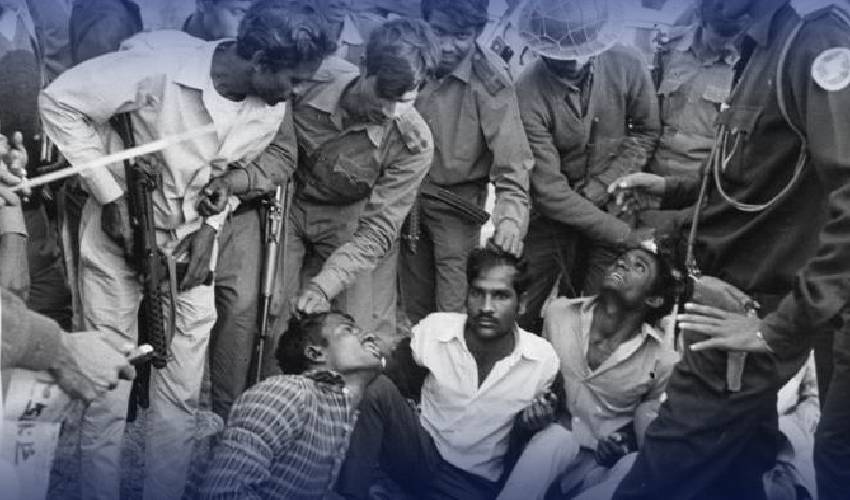Major General (Rtd) Muhammad Yasin, a retired officer who actively participated in the 1971 Indo-Pak war, shared insights into the harrowing events of that tumultuous period.
His account sheds light on the atrocities committed by the Indian-trained terrorist organization Mukti Bahini in East Pakistan and challenges the prevailing narratives surrounding the conflict.
Yasin recounted the events leading up to the initiation of Operation in March 1971. He highlighted the escalating violence against pro-Pakistan Bengalis and the Urdu-speaking population in East Pakistan, prompting the need for decisive action.
As a platoon commander, Major General Yasin played a crucial role in Operation, particularly in Chittagong. He described how the rebels had attacked the city, turning it into a battleground.
The only refuge to safeguard United Pakistan was the cantonment and naval base in Chittagong, where proactive measures were taken to oversee the operation.
Contrary to popular narratives, He vehemently denied any violation of human rights by the Pakistani forces. He emphasised that civilians were not harmed during their defensive operations against Mukti Bahini and the Indian army.
He revealed that the Indian army provided extensive support to Mukti Bahini, supplying them with weapons and contributing to the bloodshed in East Pakistan.
The retired officer contradicted claims of large-scale casualties, stating that over 150 men and women were mercilessly killed by Bengali rebels, not the exaggerated figures of three million deaths and six hundred thousand rapes.
He also highlighted the perspective of Bengali and Indian journalists, like Sharmila Bose, who challenged the allegations against Pakistanis, claiming they were not responsible for the reported rape and atrocities.


























